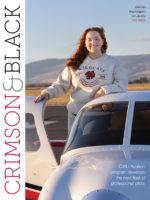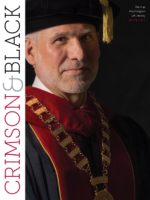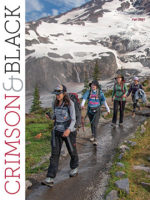
As the world begins to emerge from a two-year international public health crisis, the demand for qualified health sciences professionals has never been higher.
This ever-evolving field requires the next generation of professionals to have hands-on experience and an intimate knowledge of modern practices from the moment they graduate, and CWU’s Department of Health Sciences has taken this concept to heart.
Over the past 12 years, Central has developed into one of the industry’s best at providing this elite level of training. From paramedicine and dietetics to clinical physiology and public health, CWU introduces its students to every facet of the health
sciences profession, providing them with the skills they need to pursue advanced studies or thrive in their chosen field right away.
This intense focus on real-world applications drives the department’s success, and with a new facility opening this year, department Chair Ethan Bergman believes this lofty success rate will only accelerate.
“It’s a blossoming field,” he said. “There are more and more needs for well-trained professionals all the time, and those professionals need the kind of hands-on experience we provide to succeed out in the field.”
When exploring the history of the Health Sciences department, a common thread of adaptability and awareness emerges for each of its programs. The faculty strives to provide students with a training ground that represents the industry’s current
climate, and by working with employers across the state as part of their education, Central graduates emerge well-prepared for the stresses and complexities of the work.
In fact, some step into professional roles before they even complete their studies. When internships became less attainable during the pandemic, Public Health lecturer Amie
Wojtyna started an Academic Service Learning (ASL) program that put students to work in a call center to help Kittitas County officials track cases and field requests from quarantined students.
“The students had an amazing experience,” she said. “Through this work, they got trained in contact tracing, case investigation, cultural competency, HIPAA, working with human subjects, and many other professionally applicable skill sets.”
Wojtyna is an infectious disease epidemiologist who spent years working with the Centers for Disease Control and Prevention. She is glad she had a chance to pass along that experience to her students, and the institution as a whole, during the
pandemic.
While many health sciences disciplines take place chiefly in clinics or labs, the data analysis and applied communication Wojtyna imparts to her students are just as vital in the real world. Writing grant proposals, record-keeping and reporting, lobbying, and writing legislation each serve to keep information flowing—and, most importantly, to keep the population healthy.
“At a health department, you have infectious disease reports coming in daily, even if it’s not a pandemic,” Wojtyna said. “Tracking them may not be glamorous work, but it’s super important, and our students leave CWU prepared for those kinds of tasks as well.”
CWU’s Health Sciences faculty remain active in the field outside of their involvement with the university, which contributes to the school’s reputation of professionalism and involvement. Those experiences also help forge relationships between employers and faculty that ultimately benefit students.
It’s no wonder, then, that Health Sciences graduates enjoy such a high job placement rate. For instance, as a dietetics alumni survey in 2017-18 revealed: “of graduates who seek employment, 100% were employed in nutrition or dietetics or a related field within 12 months of program completion.”
Likewise, most students in the Paramedicine program can expect to be hired almost immediately upon graduation, thanks in part to CWU’s nearly 50-year history of excellence in training paramedics and emergency medical technicians (EMTs). With the program’s sterling reputation, employers feel confident that graduates can perform at the level needed to save lives.
“We provide that real-world component of training that ensures students get what they need,” Bergman said, adding that accredited programs like the one at Central must self-evaluate every seven years to guarantee continued excellence.
“They’re exposed to equipment and its use so that when they go out in the field, they’re already familiar with it. We try to make the transition from education to experience as seamless as possible, so our students can go out there and be immediately effective.”
By the time Health Sciences students graduate, they’re equipped with several years of field experience. Every element of the program ties back to the real world, and the experiences stay with students far beyond the confines of the classroom.
“All of the project work that we have students do are items that I hope they are putting on their resumes,” Wojtyna said. “Even if it’s coursework—if you’re writing a grant proposal, you’re writing a real grant proposal. If you’re conducting contact-tracing, that’s real contact-tracing. If you’ve done it here, you’ve done it, period.”






comments powered by Disqus